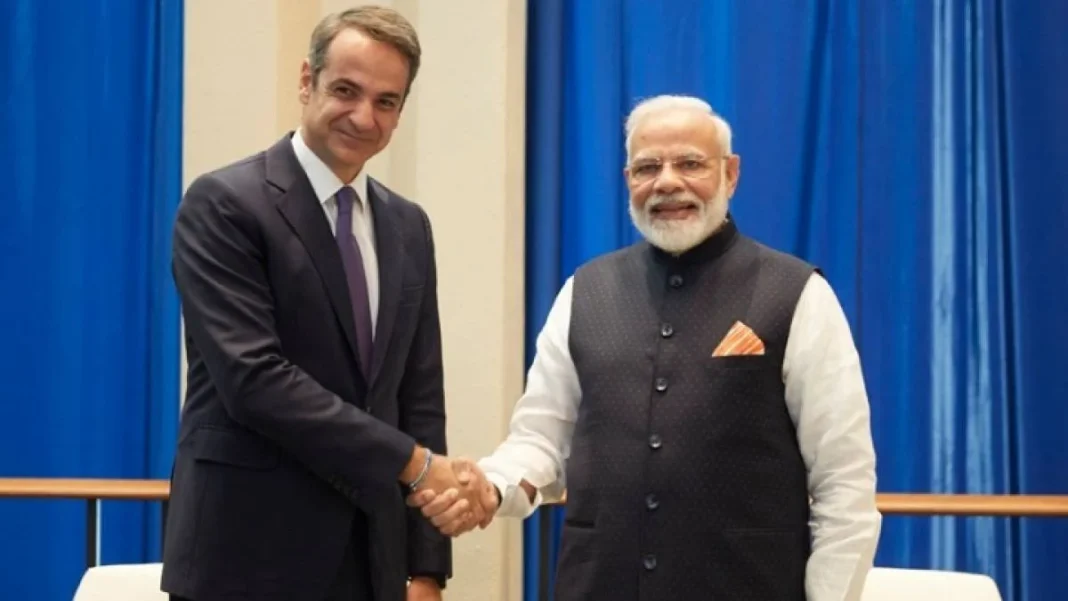Indian Prime Minister Narendra Modi is slated to embark on a significant diplomatic visit to Greece later this month, bolstering ties with the European country. This visit comes as a part of PM Modi’s attendance at the BRICS summit in South Africa, underscoring India’s commitment to global partnerships. Notably, this marks a watershed moment in the relationship. The last Indian Prime Minister to visit Greece was former PM Indira Gandhi back in 1983.
External Affairs Minister S. Jaishankar’s visit to Greece in 2021 laid the groundwork for heightened engagement, highlighted by the unveiling of a statue of Mahatma Gandhi in Athens. Beyond symbolic gestures, substantial diplomatic achievements have taken place. During EAM Jaishankar’s 2021 visit, a Framework Agreement on the International Solar Alliance was signed, reflecting both nations’ commitment to sustainable development. This agreement was subsequently ratified by the Greek Parliament in March 2022, reaffirming the tangible progress made.
PM Modi’s forthcoming visit to Greece highlights India’s deepening involvement in the Mediterranean region, where robust relationships have been established with nations like Cyprus and Italy. Earlier this year, in a remarkable display of India’s global humanitarian commitment, its timely Humanitarian Assistance and Disaster Relief (HADR) efforts during the distressing earthquake in Turkey and Syria exemplified its operational effectiveness even beyond its immediate vicinity.
Bilateral defence cooperation has also been on the ascent. Notably, the Indian Air Force’s participation in the INIOCHOS-23 multinational air exercise hosted by the Hellenic Air Force showcased a burgeoning partnership. Similarly, the Indian Navy’s INS Chennai conducted a Passage Exercise with the Hellenic Naval Ship Nikiforos Fokas during a visit to Souda Bay, Crete. As a reciprocating gesture, Greece’s air force has been invited to join Indian air force exercises in September.
The diplomatic rapport between India and Greece extends beyond military manoeuvres. Both nations have been aligned on core international issues, with Greece consistently supporting India’s stance on matters like Kashmir and Cyprus. Greece’s backing of India’s bid for a permanent seat on an expanded United Nations Security Council exemplifies their shared interests in global affairs. Additionally, Greece’s support during critical international agreements like the NSG, MTCR, WASSENAAR arrangements, and Australia Group demonstrates the country’s solidarity with India.
As of the 2011 Greek census, the Indian community in Greece numbered 11,333. This community has since grown, currently estimated to range between 13,000 to 14,000 members, serving as a bridge between the two nations. This bond isn’t just contemporary; it’s rooted in history. From the era of Mauryan Kings engaging in trade with Greece, evidenced by ancient coinage and writings, to Alexander the Great’s expedition in 326 BC that left an indelible mark on India’s history, these ties have been enduring. The echoes of World Wars resonate too, with over 500 soldiers from undivided India laid to rest in Greek soil, a poignant reminder of shared sacrifices.

